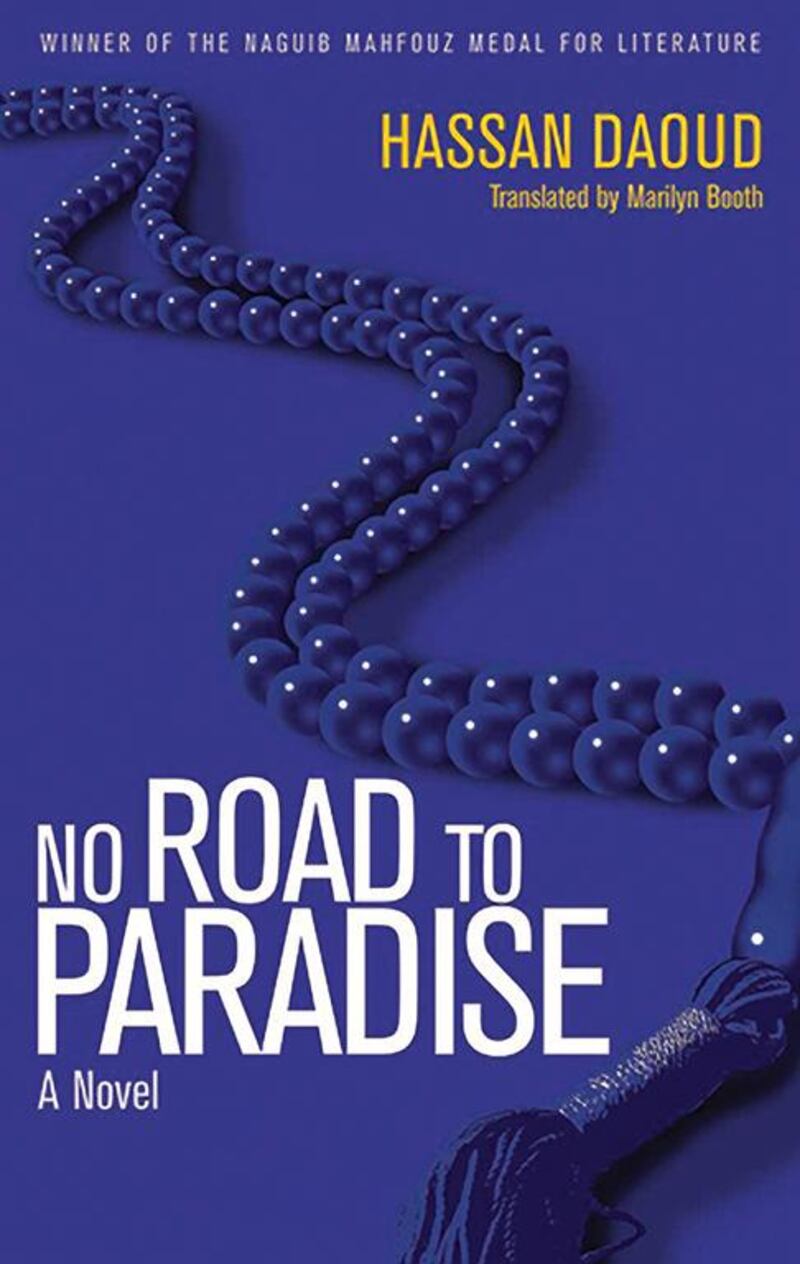Lebanese novelist Hassan Daoud is a master chronicler of bodily illness, uneasy relationships and social isolation. In No Road to Paradise, these themes are brought together in the life of a small-town imam whose father cannot speak, whose children cannot hear and whose wife doesn't like him. The 2013 novel has been translated into precise, understated English by Marilyn Booth, who previously worked on Daoud's challenging Penguin Song.
It was two years after its publication, in 2015, that No Road to Paradise won the prestigious Naguib Mahfouz Prize for Arabic Literature. The judge's comments highlight the contradictions of Daoud's work. Judge Tahia Abdel Nasser said the novel "evokes a state of non-action", while prize judge Rasheed El Enany remarked on its "slow, meticulous, stagnant narration".
It's not often that a book described as "stagnant" wins a major literary award. Yet the apparent inertia of No Road to Paradise, like that of Penguin Song, also bristles with the desperation, hope and unhappiness of ordinary human life.
The life of Daoud’s imam isn’t uneventful. There are many moments that could, in a different novelist’s hands, produce dramatic tension. Our narrator suffers from a terminal cancer and must undergo major surgery while alone in Beirut. He is in love with his widowed sister-in-law and visits her in secret, with the seeming collusion of his nephew. His father – once the town’s respected and feared imam – is dying. His two sons go away to a Beirut school for the deaf but are rejected and sent back home. Most dramatically, the family career is in jeopardy: a group of fundamentalists has taken over the town mosque. If our narrator doesn’t help drive them out, these men will impose strict new rules.
But even the invaders’ attack on the town school, overturning desks and urinating on them, doesn’t rouse our narrator to action. Our imam doesn’t want confrontation.
In this, No Road's narrator is starkly different from his mute, infirm father – a man who would rush to overturn the tables of men playing a game of cards, hurling everything to the ground. Our imam's father once stood up to a fighting force, presumably during Lebanon's civil war. The son lagged behind on this day, as he did on others. While his father strode toward the soldiers, our narrator screamed and fled.
This frightened scream doesn’t make our narrator any less sympathetic. Yet we can’t fully connect with him, either. Daoud’s prose purposefully holds his characters in separate worlds and also separate from the reader.
Even the characters closest to our imam – his sister-in-law, his father and his wife – are kept at a remove. The imam’s wife is a major presence, and yet we view her obliquely, as though we can only see her from the corner of his eye. What we see is mostly what he expects: her barely suppressed rage.
When the imam’s wife visits him in the hospital, he doesn’t see her. Instead, he sees his expectations. “As dizzy and exhausted as I was, still I could predict that she would not know what to say.”
We acutely feel the changes in our imam’s body, both from the cancer and from the surgery. But he never quite admits to what’s going on. The surgery has changed him in ways he never manages to address. He tries to ask the doctor how things have changed down there, but both of them break off the conversation in embarrassment. In his meetings with his sister-in-law, he knows he must stop their embraces before things go too far. After all, he will not be able to consummate their passion.
Once the fundamentalists have fully taken over the mosque, our imam tells his only friend – who is not really a confidante – that he might want to take off the garb worn by himself, his uncle, his father, his grandfather and his great-grandfather. Neither our imam nor his friend are sure if he’s serious. So our imam, characteristically, “adapted my words to suit what [his friend] believed”.
Daoud has an obsessive fascination with the difficulties of human connections, including the connection with our internal "I". It is because Daoud is so successful that his books are a difficult pleasure. There are no great joys or sorrows in No Road to Paradise, nor are we allowed any deep intimacies. Instead, there are the beautiful details of trying to get comfortable on a hospital bed, or communicating with your children, or the hardest struggle of all: to know one's own mind.
M Lynx Qualey is an editor and book critic. She edits the website arablit.org.





